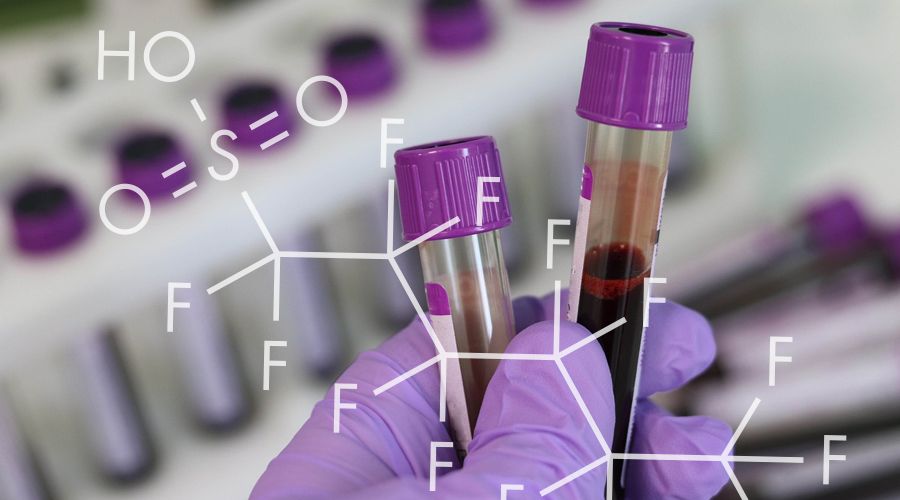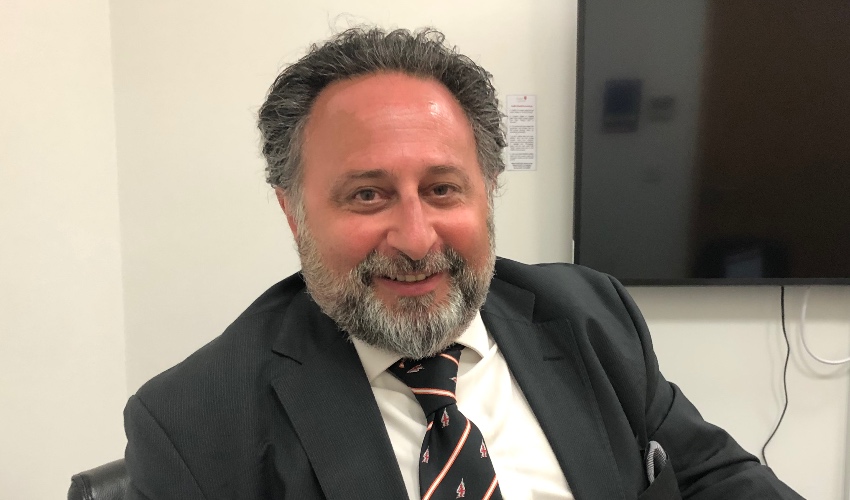


A group of scientists that will recommend how the Government supports islanders who have high levels of a cancer-linked chemical in their bodies will meet again next week to further discuss the merits of blood removal.
The ‘PFAS Scientific Advisory Panel’ was formed in June to advise Director of Public Health Professor Peter Bradley on possible action after a blood-sampling programme last year found that those tested had higher than normal levels.
PFAS stands for per- and polyfluoroalkyl substances and is an umbrella term for a family of thousands of chemicals that were engineered for their indestructible and non-stick properties.
They are used in a huge range of consumer products, including waterproof clothing, furniture, cookware, electronics, food packaging and firefighting foams and are employed in a wide array of industrial processes.
Firefighting foam containing one of the family, called PFOS, was sprayed at the Airport up until the early 1990s. It flowed into streams and boreholes that were used for drinking and washing.

Pictured: PFAS Scientific Advisory Panel chair Dr Steve Hajioff.
The 70 or so islanders who volunteered to be tested last year all lived in water catchment areas flowing from the Airport.
The advisory panel, chaired by Dr Steve Hajioff, a former director of public health in London, is preparing five reports, with the first focusing on the efficacy of ‘therapeutic phlebotomy’ – the concept that removing blood and letting it naturally replenish lowers PFAS levels.
Dr Hajioff is joined by epidemiologist Dr Tony Fletcher, who is an expert on the health implications of PFAS, Professor Ian Cousins, who specialises on its environmental impact, and Grace Norman, the island’s Deputy Director of Public Health, who is an observer at panel meetings.
Published studies into therapeutic phlebotomy include one where six people in Canada saw their levels of PFAS fall significantly over the course of a year. The average fall was 29% over the 12 months, including an estimated 12% drop which would have happened naturally anyway.
Another study which focuses on a group in Italy also suggests that phlebotomy has a positive impact, although it has not been fully reported.
Part of the panel’s job is to advise if a clinical study in Jersey is warranted and, if it is, what should be its criteria.
Recently published minutes from the panel's last meeting on 4 August state: “The chair said that the whole programme [of] phlebotomy, if the panel go down this road, is a pilot in effect so there is the scope to adjust during the programme on the basis of emerging findings and one of the things that the panel already talked about is that they would want to collect data.
“The panel want to have additional blood testing on people who are going through the programme so we can know things about their health and maybe have them reporting symptoms as well as they were to go through a programme if were to go down that that road. That could also feed back into any review of duration of treatment.
“The final piece is that any pilot programme would almost certainly still be running as the panel get to the publications of reports two and three [detailed reports on PFAS exposure and potential treatments].
“It may be that depending on what the panel find in doing report three that there’s a sort of hand off from a pilot into something different.”
Doctor appointed Gov's lead adviser on toxic chemical in water supply
Gov identify experts to recommend action on toxic chemical in water
Comments
Comments on this story express the views of the commentator only, not Bailiwick Publishing. We are unable to guarantee the accuracy of any of those comments.